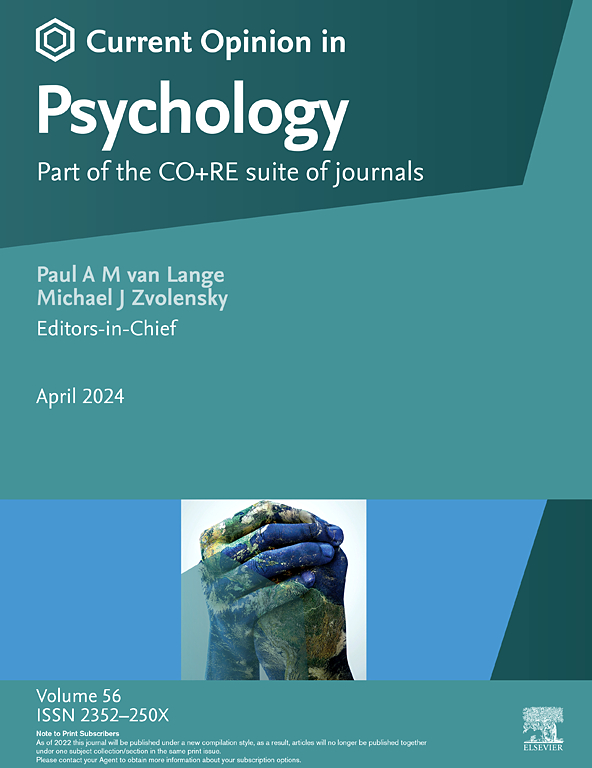Conspiracy belief and the willful ignorance of information
IF 6.9
2区 心理学
Q1 PSYCHOLOGY, MULTIDISCIPLINARY
引用次数: 0
Abstract
The idea that conspiracy believers are prone to willful ignorance is widespread, yet many seemingly supporting studies lack designs suited to test this claim. Emerging research that actually examines willful ignorance along the information processing stream provides a more nuanced and optimistic picture. While there is initial (though limited) evidence that conspiracy believers are less likely to engage with facts in the first place, there is only little support for willful ignorance upon confrontation with such information. That is, conspiracy believers are no more likely to reject fact-based and normative information (but potentially more likely to value conspiratorial information) and are as likely as others to adapt their judgements and decisions accordingly. However, differences between generalized and specific conspiracy beliefs emerged that need to be considered in the design and timing of informational interventions that aim to reduce the potentially negative consequences of conspiracy beliefs.
阴谋信仰和对信息的故意无知
阴谋论者倾向于故意无知的观点很普遍,然而许多看似支持的研究缺乏适合测试这一说法的设计。新兴的研究实际上考察了信息处理过程中的故意无知,提供了一幅更加微妙和乐观的画面。虽然有初步的(虽然有限的)证据表明,阴谋论者不太可能首先与事实接触,但在面对这些信息时,只有很少的证据支持故意无知。也就是说,阴谋论者不太可能拒绝基于事实和规范的信息(但潜在地更有可能重视阴谋信息),并且与其他人一样有可能相应地调整他们的判断和决定。然而,在设计和实施旨在减少阴谋信念潜在负面影响的信息干预时,需要考虑到广义阴谋信念和特定阴谋信念之间的差异。
本文章由计算机程序翻译,如有差异,请以英文原文为准。
求助全文
约1分钟内获得全文
求助全文
来源期刊

Current Opinion in Psychology
PSYCHOLOGY, MULTIDISCIPLINARY-
CiteScore
12.10
自引率
3.40%
发文量
293
审稿时长
53 days
期刊介绍:
Current Opinion in Psychology is part of the Current Opinion and Research (CO+RE) suite of journals and is a companion to the primary research, open access journal, Current Research in Ecological and Social Psychology. CO+RE journals leverage the Current Opinion legacy of editorial excellence, high-impact, and global reach to ensure they are a widely-read resource that is integral to scientists' workflows.
Current Opinion in Psychology is divided into themed sections, some of which may be reviewed on an annual basis if appropriate. The amount of space devoted to each section is related to its importance. The topics covered will include:
* Biological psychology
* Clinical psychology
* Cognitive psychology
* Community psychology
* Comparative psychology
* Developmental psychology
* Educational psychology
* Environmental psychology
* Evolutionary psychology
* Health psychology
* Neuropsychology
* Personality psychology
* Social psychology
 求助内容:
求助内容: 应助结果提醒方式:
应助结果提醒方式:


